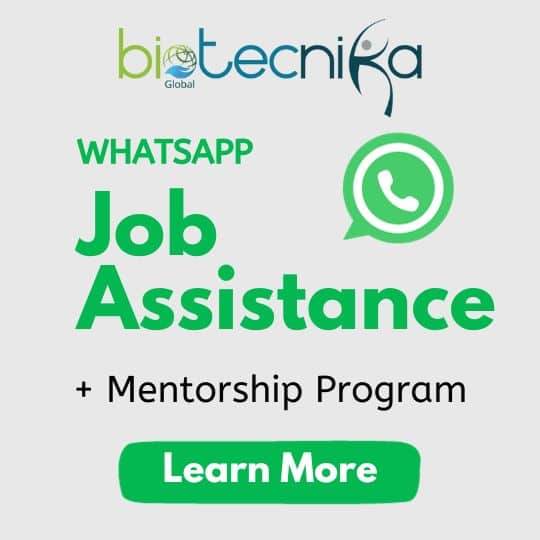The CSIR NET (Council of Scientific and Industrial Research National Eligibility Test) examination stands as a significant milestone for life science students in India. It opens doors to a multitude of opportunities, with Junior Research Fellowship (JRF) and lectureship being the prime ones. However, the journey doesn’t stop there. The research interview that follows, a crucial phase after qualifying the CSIR NET exam, holds the key to securing a JRF or a research position. This article serves as a comprehensive guide for life science graduates on how to effectively prepare for and excel in the research interview post-CSIR NET qualification.
Table of Contents
Unpacking the Importance of the CSIR NET Research Interview
The research interview is the gateway to your dream of becoming a successful researcher in the field of life sciences. It is not just an evaluation of your theoretical knowledge but an assessment of your practical understanding, analytical thinking, research enthusiasm, and communication skills. The CSIR NET exam has established your foundational knowledge; now the interview scrutinizes
your aptitude for research and your potential to contribute to the scientific community.MUST WATCH VIDEO
Tailoring Your Preparation for the CSIR NET JRF Research Interview
1. Embrace Profound Subject Mastery:
Life science research interviews delve deep into subject-specific knowledge. Revisit the core concepts, recent breakthroughs, and fundamental theories within your chosen life science domain. Be prepared for intricate questions and discussions on advanced topics.
2. Stay Updated on Current Research:
Stay attuned to the latest publications, discoveries, and scientific advancements in your field. Familiarity with recent trends showcases your dedication to staying informed beyond textbooks.
3. Own Your Work:
If you’ve undertaken research projects or have contributed to publications, be ready to elaborate on them. Understand the methodologies, findings, implications, and potential avenues for further exploration in your work.
4. Hone Problem-Solving Acumen:
Research often involves tackling complex problems. Sharpen your problem-solving skills by working on intricate life science problems. Demonstrate your analytical thinking and creativity in approaching challenges.
5. Master Articulate Communication:
Effective communication is paramount. Practice explaining intricate concepts in simple language. Refine your articulation, clarity, and ability to convey ideas coherently.
6. Simulate Mock Interviews:
Engage in mock interview sessions with peers, mentors, or online platforms. These practice rounds familiarize you with the interview dynamics, provide constructive feedback, and reduce anxiety.
7. Polish Interview Etiquette:
Familiarize yourself with proper interview etiquette. Dress professionally, arrive punctually, greet the panel courteously, and maintain confident eye contact throughout.
8. Probe Your Motivation:
Be prepared to articulate your fascination with research, your specific area of interest, and how the JRF or research role aligns with your career aspirations.
9. Investigate the Interview Panel:
If feasible, research the panel members. Gain insights into their backgrounds and recent contributions to the field. This knowledge can guide you in tailoring your answers and engaging in relevant discussions.
Excelling in the CSIR NET Life Science Research Interview
1. Confidence Counts:
Approach the interview with confidence, while steering clear of overconfidence. Remember, the panel is eager to witness your potential as a life science researcher, so infuse your responses with genuine enthusiasm.
2. Structure Your Responses:
Organize your answers coherently. Commence with a succinct introduction, present your main points, and conclude with a concise summary. This structured approach enhances the clarity of your responses.
3. Participate Actively in Dialogues:
Life science interviews often involve dynamic discussions. Listen attentively to panel queries and comments, and respond thoughtfully. Don’t shy away from expressing your perspective and participating in intellectual exchanges.
4. Highlight Interdisciplinary Aptitude:
If your life science interests bridge across disciplines, emphasize how your multifaceted knowledge can contribute to innovative research endeavors.
5. Showcase Problem-Solving Prowess:
Exhibit your capacity to think critically and solve problems on the spot. Deconstruct complex problems into manageable components, elucidating your reasoning as you approach solutions.
6. Present Your Research Ideas:
Prepare to share potential research concepts you wish to explore during your JRF or research tenure. This underscores your proactive attitude and keenness to enrich the scientific domain.
7. Admit Limitations Honestly:
If uncertain about a question, honesty trumps pretense. Acknowledging uncertainty is more favorable than providing inaccurate information. Integrity and truthfulness are highly valued in the research community.
8. Pose Thoughtful Queries:
Towards the interview’s conclusion, you’ll likely have the opportunity to pose questions. Craft insightful inquiries about the research ecosystem, available resources, ongoing projects, and scopes for collaboration.
Conquering Interview Apprehension
Nervousness is natural, but managing it is achievable:
1. Breathe Deeply:
Deep, deliberate breaths can calm your nerves and enhance focus. Before entering the interview room, take a moment to breathe deeply.
2. Harness Visualization Techniques:
Envision yourself confidently responding to questions and engaging in discussions. Visualization can bolster your self-assurance.
3. Champion Positive Self-Talk:
Replace self-doubt with positive affirmations. Remind yourself of your accomplishments and capabilities.
4. Prioritize Physical Well-Being:
In the days preceding the interview, prioritize sleep, exercise, and a balanced diet. Physical well-being complements mental preparedness.
Etiquette Post the Interview
The interview’s aftermath involves crucial steps:
1. Send a Gratitude Note:
Within 24 hours, send a thank-you email. Express your appreciation for the interview opportunity and reiterate your enthusiasm for the position.
2. Reflect and Evolve:
Regardless of the interview outcome, reflect on your performance. Identify areas for enhancement and leverage the experience to refine your interview skills.
BONUS TIP
Factors to Consider in the Admission Process
- 📜The Merit list is published based on the performance of candidates in the CSIR NET UGC exam.
- 💼Preference is given to research proposals that are not only relevant to the laboratory’s interests but also of national importance, highlighting the significance of impactful research in the CSIR NET admission process.
- 💼It is important to decide on the area you want to work in based on your interest and passion.
- 💉When deciding on a research area, it is important to consider both your interests and the expertise you have gained from past degrees, project work, and internships.
- 💼When shortlisting institutes for application, it is important to research and select scientists who are working in the specific area of interest and can provide recognition and opportunities for growth.
- 🏫When choosing a guide or lab for PhD admission, it is advisable to interact with current students in that department to gain insights and make an informed decision.
LAUNCHED: 21 Days Exclusive Proteomics Research Internship For Biotech, Chemistry & Pharmacy Students
Supercharge Your Knowledge & Skills in Proteomics Research & Excel in the R&D Industry
- Starts From 28th August 2023
- Time: 6 PM to 7 PM
- FREE Under Watson Impact Scholarship – https://wise.biotecnika.org/
Conquering the research interview following the CSIR NET exam is a monumental stride for life science graduates. It paves the way to an exciting research career in the realm of life sciences. Thorough preparation, comprehensive subject knowledge, effective communication, problem-solving prowess, and an unwavering demeanor form the core of an interview-winning strategy. Remember, the interview goes beyond assessing your knowledge; it evaluates your potential to make impactful contributions to life science research. Approach the interview with passion, participate earnestly in discussions, and showcase your dedication to advancing scientific understanding. With the right tactics and mindset, you can triumph in the research interview, propelling yourself towards a gratifying journey in life science research.













































